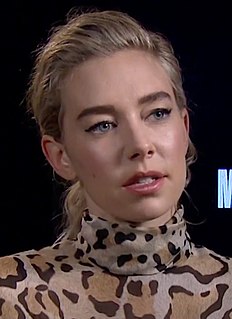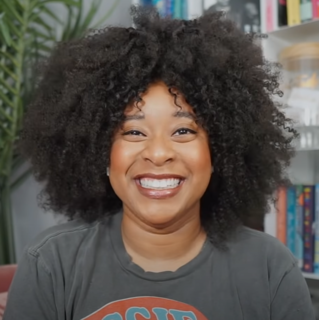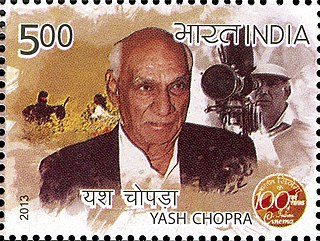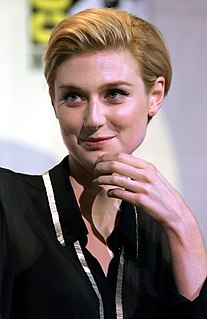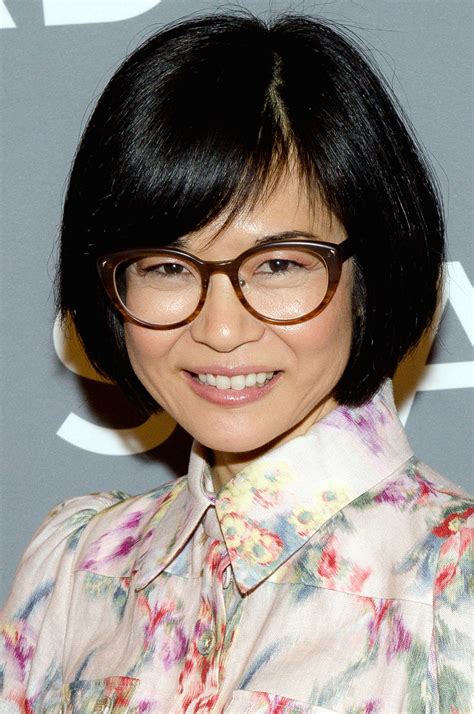A Quote by Vanessa Kirby
I never want to make any characters one-dimensional, especially as women can often be portrayed as the dark one or the evil one.
Related Quotes
Comedy in the past hasn't spoken to women because it wasn't written by women, and male writers don't make women three-dimensional characters. Too often, women just facilitate the man's comedy: they're not crazy; they're not funny. But women are as vulgar as they are elegant, as stinky as they are smelling of eau de parfum.
Though, technically, I'm shooting on location, my films are actually based inside a woman's heart. I think women are more emotional than men, and that's a thread I've explored in all my films. When I see TV these days, I'm shocked at how all the main women characters are portrayed as evil. Women are the foundation of everything, and they deserve to be treated that way on camera.
What intrigues me is that people kind of naturally want to label or pigeonhole the characters. They want to make it easy for themselves to go, "All right. There's the good guy, there's the bad guy, there's the girl. Okay, I get it now." But life isn't one-dimensional. The world isn't simply divided into good versus evil. I think we're all capable of both. So any time the hero does something I'm not crazy about, or the bad guy does something I can relate to, I'll find it more interesting.
In the early fight for women's rights, the point was not that women were morally superior or better. The conversation was about the difference between men and women - power, privilege, voting rights, etc. Unfortunately, it quickly moved to the "women are better" argument. If this were true in life or in fiction, we wouldn't have any dark or deep characters. We wouldn't have any Salomes, Carmens, Ophelias. We wouldn't have any jealousy or passion.
I do get a little disheartened when you hear about how many girls get discouraged to not pursue a career in the sciences, and I feel like seeing women that are portrayed in this way - and beyond that, just three dimensional, complicated women - those are always going to be the stories that I gravitate to most.
